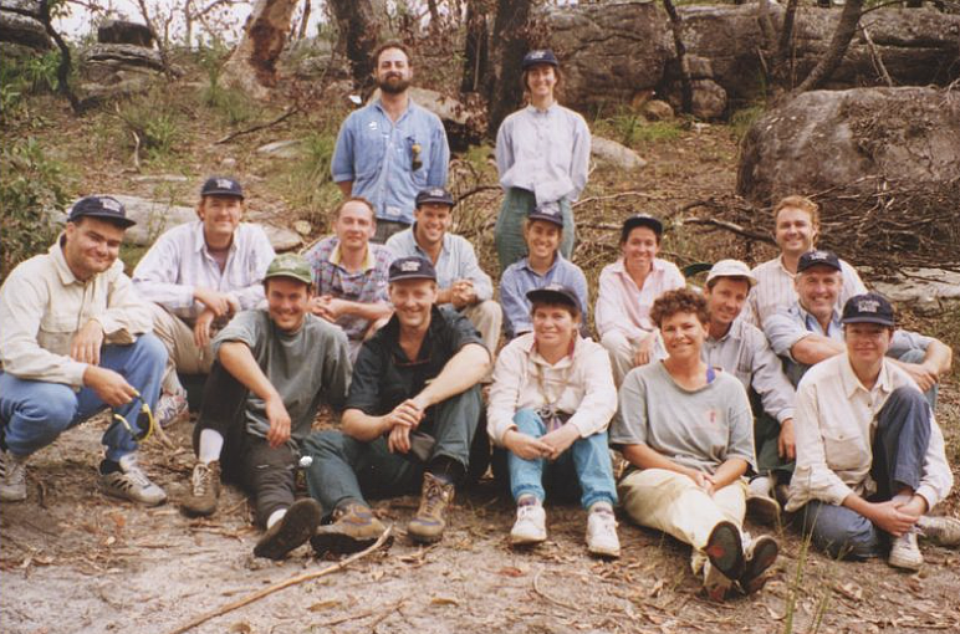
ICDA and BoardPro partnership unlocks digital governance tools for not-for-profits nationwide
Posted on 10 Dec 2025
Adele Stowe-Lindner, Executive Director, Community Directors The Institute of Community Directors…
Posted on 09 Nov 2023
By Greg Thom, journalist, Institute of Community Directors Australia

Rules on Deductable Gift Recipient status for charities, cutting red tape and protecting the sector’s right to advocate were among the issues raised at a recent town hall style meeting fronted by Charities Minister Andrew Leigh.
About 100 charity and not-for-profit sector leaders looking for answers to some of the sector's most pressing challenges attended the gathering at the historic Melbourne Town Hall.
They included the Australian Charities and Not-for-profits Commission Advisory Board chair and Alannah & Madeline Foundation CEO Sarah Davies, Infoxchange CEO David Spriggs, and Youth Projects CEO Ben Vasiliou.
Organisations in attendance reflected the diversity of the sector and ranged from the Victorian Council of Social Service (VCOSS) to Multicultural Museums Australia and the National Heart Foundation.
In his opening remarks, Mr Leigh laid out the challenges facing the sector and concrete steps the federal government has set in train to address them.
He said over the past few decades Australia has lost ground on virtually every metric used to measure the health of civic society.
“The context in which we are having this conversation is one in which Australian community life is under pressure,” Mr Leigh told his audience.
He said over the course of the past generation Australia has:
Mr Leigh said the typical Australian had twice as many friends in the 1980s as they do today and used to know double the number of neighbours.
“So, part of the answer to that is revitalising the charity and community sector.”
“Over the years it’s become apparent that with most charities fundraising online the old rules just aren’t fit for purpose.”

Mr Leigh said one of the key initiatives toward that goal was a “once in a generation” review of philanthropy.
“We’ve set a goal as a government to double philanthropy by 2030 and the Productivity Commission is looking at some of the barriers that might stand in the way of us achieving that.”
Mr Leigh said one of those barriers was possibly adjusting the tax settings in relation to organisations' eligibility for Deductable Gift Recipient status.
Organisations endorsed as having coveted DGR status can accept tax deductible donations.
Encouraging more Australians to reach into their pockets, from billionaire philanthropists to employees via workplace giving programs, was also a priority.

“I’d love to see more Australian workers taking advantage of workplace giving programs that exist in about half the workplaces in Australia today but are only used by about one in 50 workers,” said Mr Leigh.
He said the government was working with the states and territories to “harmonise” fundraising laws.
“Over the years it’s become apparent that with most charities fundraising online the old rules just aren’t fit for purpose,” said Mr Leigh.
“They were written for an age when going online meant something you did with wet washing.”
Mr Leigh said the Not-for-Profit Sector Development Blueprint was an important initiative designed to guide government reform.
“It [the blueprint] sits alongside the Productivity Commission inquiry, so its main focus won’t be on philanthropy, but it will be on building and strengthening the sector,” he said.
Mr Leigh said the charity and NFP sector accounted for more than a tenth of Australia’s workers, almost a tenth of GDP, and millions of volunteers.
“Imagine if you woke up tomorrow and charities weren’t operating. Australia would grind to a halt.”

During the hour-long session, Mr Leigh was quizzed on a diverse range of issues that are top of mind for the sector, including:
DGR eligibility:
“One of the things we are going to ask the Productivity Commission to do is to look systematically through these (52) categories and see if there are areas that shouldn’t be in and areas that should be in and try and ensure that the categories are for purpose and are able to reflect societies values.”
Making sure under-pressure charities received enough funding to keep pace with the increasing demand on their services:
“The issue of appropriate indexation is one that Amanda Rishworth (Social Services Minister) and I raised prior to the election and it's going to be a priority for the government."
Ensuring the NFP Sector Development Blueprint translated beyond words into action:
“Building momentum [for the Blueprint] I think is about [communicating] that strengthening charities has benefits right across government. It has benefits in terms of the resilience of society when disasters hit. Think about work they are doing with the environment, the arts. Charities and not-for-profits are at the heart of that. As somebody who has been passionate about fighting poverty and disadvantage, the work that charities and not for profits do is critical.
“So, the conversations I’ll be having in relation to the blueprint across government are about the good that charities and not-for-profits do and being clear about the huge benefits we have for society."

Posted on 10 Dec 2025
Adele Stowe-Lindner, Executive Director, Community Directors The Institute of Community Directors…

Posted on 10 Dec 2025
The Australia Institute has called on the federal government to force Australian businesses to be…

Posted on 10 Dec 2025
Economic empowerment is essential to enabling recovery, restoring agency and preventing future…
Posted on 10 Dec 2025
A long-time advocate for rough sleepers in northern New South Wales has been named her state’s…

Posted on 10 Dec 2025
What a year 2025 has been, particularly at a national level where the Parliament and politics as we…

Posted on 10 Dec 2025
Anyone working in an organisation knows it: meetings follow one after another at a frantic pace. On…

Posted on 10 Dec 2025
As a qualified yoga instructor who learned the practice in her hometown of Mumbai, Ruhee Meghani…

Posted on 10 Dec 2025
Community Directors trainer Jon Staley knows from first-hand experience the cost of ignoring…

Posted on 10 Dec 2025
Stressed, overwhelmed, exhausted… if you’re on a not-for-profit board and these words sound…

Posted on 10 Dec 2025
The Institute of Community Directors Australia trains over 22,000 people each year, which gives us…

Posted on 09 Dec 2025
The late Sir Vincent Fairfax is remembered as a business leader, a chairman of AMP, and an active…

Posted on 08 Dec 2025
A pioneering welfare effort that helps solo mums into self-employment, a First Nations-led impact…